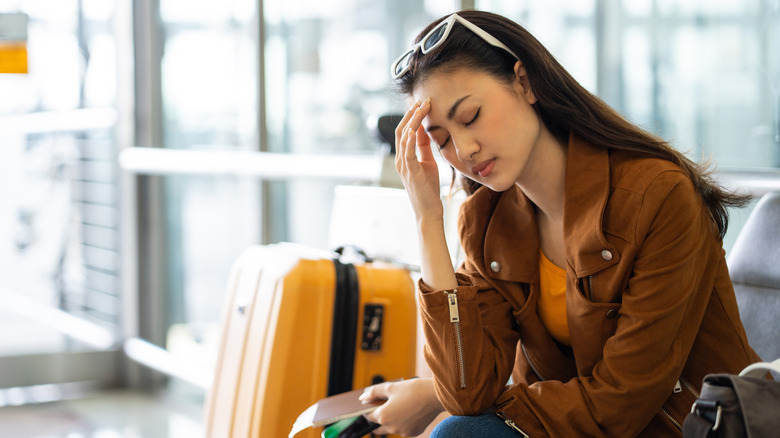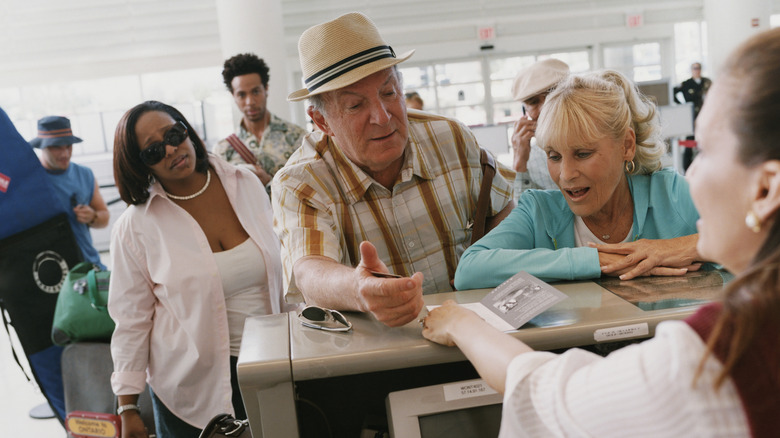The Sneaky Potential Airport Compensation Change Airlines Don't Want Travelers To Know About
A proposed regulation intended to provide automatic protection to flyers affected by flight delays or cancelations caused by airlines has hit major turbulence. The U.S. Department of Transportation (DOT) is considering a drastic rollback of the commitment to mandate cash compensation for passengers subjected to these controllable disruptions. The potential withdrawal, outlined in the DOT's regulatory agenda, would mark a significant win for airline lobbyists, and a reversal for consumer protections.
The rules, first proposed in 2023 under the administration of President Joseph R. Biden Jr., aimed to guarantee compensation for passengers after flight delays stemming from issues within an airline's control. Under the framework, customers affected by controllable disruptions (for example staff shortages or mechanical issues) could have received between $200 and $775 in cash depending on the duration of the delay, as reported by the New York Times.
The announced measure had predictably received strong pushback from the airlines. Trade group Airlines for America, which represents several U.S. carriers including American Airlines, Delta Air Lines, and United Airlines, argued in comments to the DOT in April 2025 that under the Biden administration, the DOT had overreached its purview regarding airline refunds. They said, "The costly rules do not benefit passengers, whose primary objective is to get to their destination, not get refunds." In September, the association welcomed the DOT's planned rollback and said in a statement cited by AP that it was "encouraged by this Department of Transportation reviewing unnecessary and burdensome regulations that exceed its authority and don't solve issues important to our customers."
The airport compensation change leaves passengers in a lurch
Busy airports, long TSA security lines, and annoying passengers on a flight, are stressful enough to make you consider private jets as an alternative to commercial flights. Airlines do offer some level of compensation for delays and cancellations, but without the weight of federal regulations in place, passengers in the U.S. are once again left to wrangle refunds, negotiate with agents, and cover out-of-pocket costs when their travel plans hit a snag. This potential rollback of the safety net on delays and cancelations makes an argument in favor of single-trip travel insurance, which at least offers some peace of mind.
When referring to airline compensation requirements in other parts of the world in remarks back in December 2023, President Biden had said that "Airline passengers in Canada, for example, and the European Union and other places already get these compensations. And guess what? It works. One study found that the European Union required airlines to compensate passengers for flight delays; the number of flight delays went down."
According to a survey by online compensation service AirHelp, EU passengers are more assertive about their rights after a disrupted flight, with one out of two passengers claiming compensation compared with one in five U.S. counterparts. A majority of American flyers, however, feel strongly that their protections should be improved. According to the survey, more than 52% of American passengers are in favor of tightening passenger protection, and 26% are even willing to pay a little more per ticket for the benefit.

